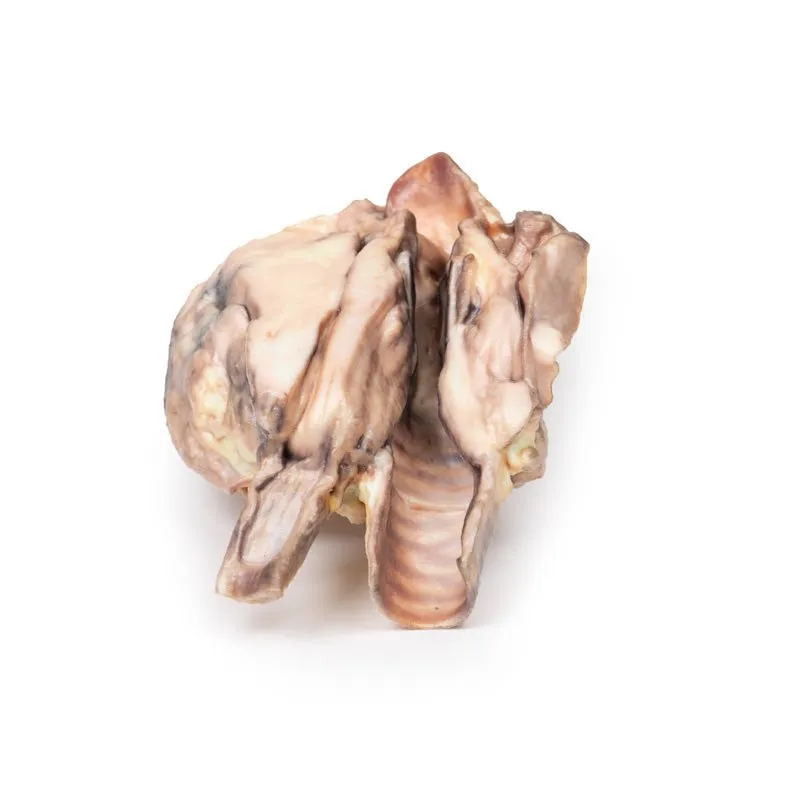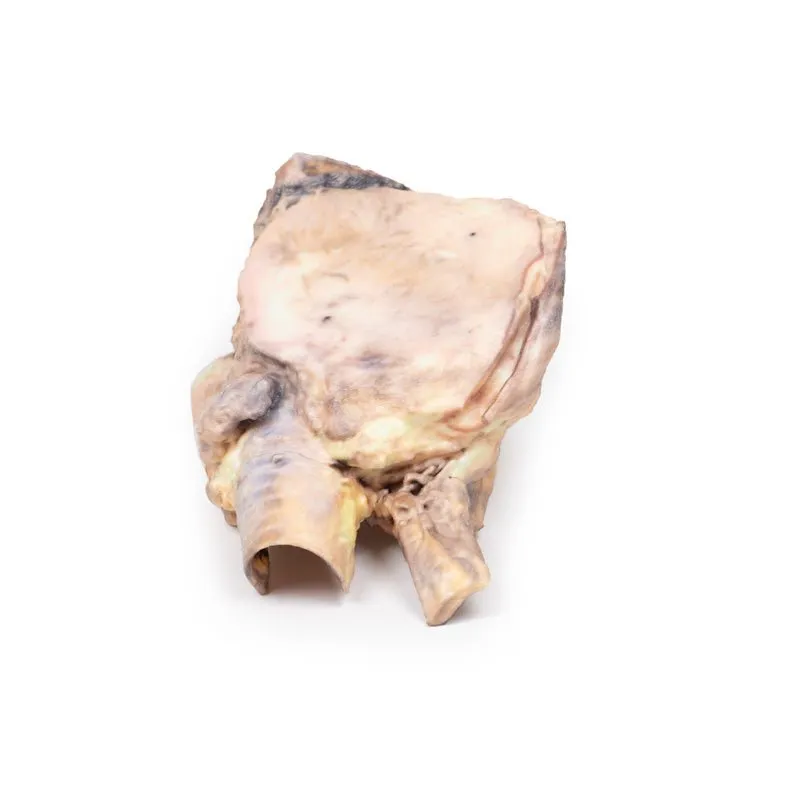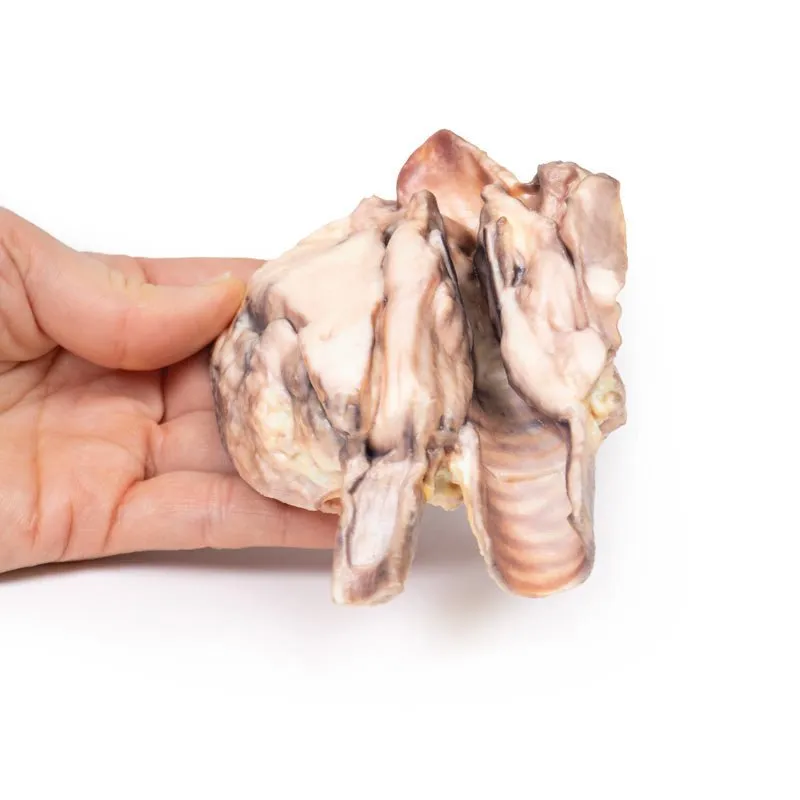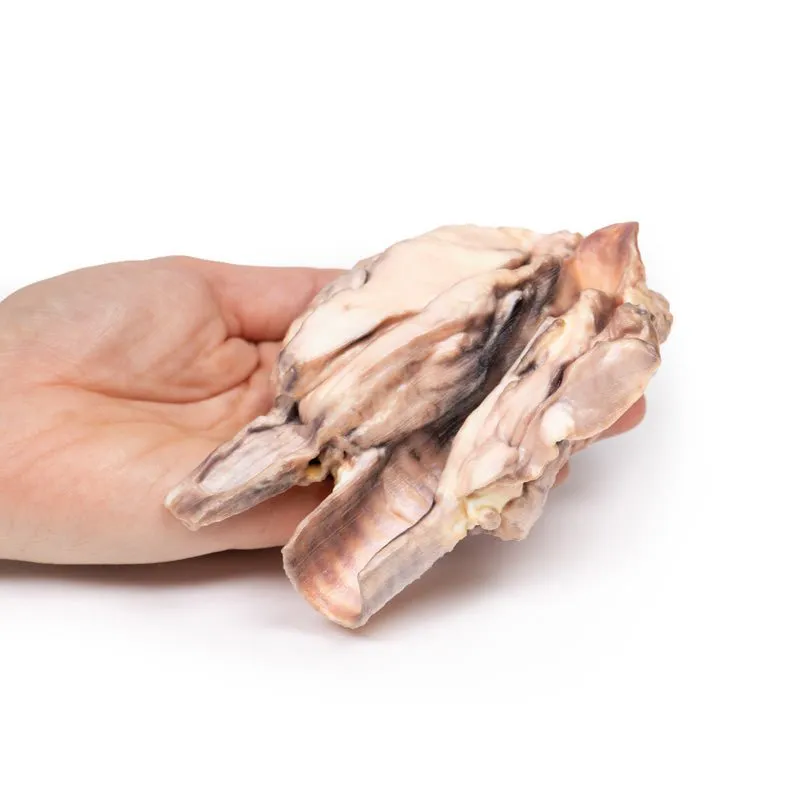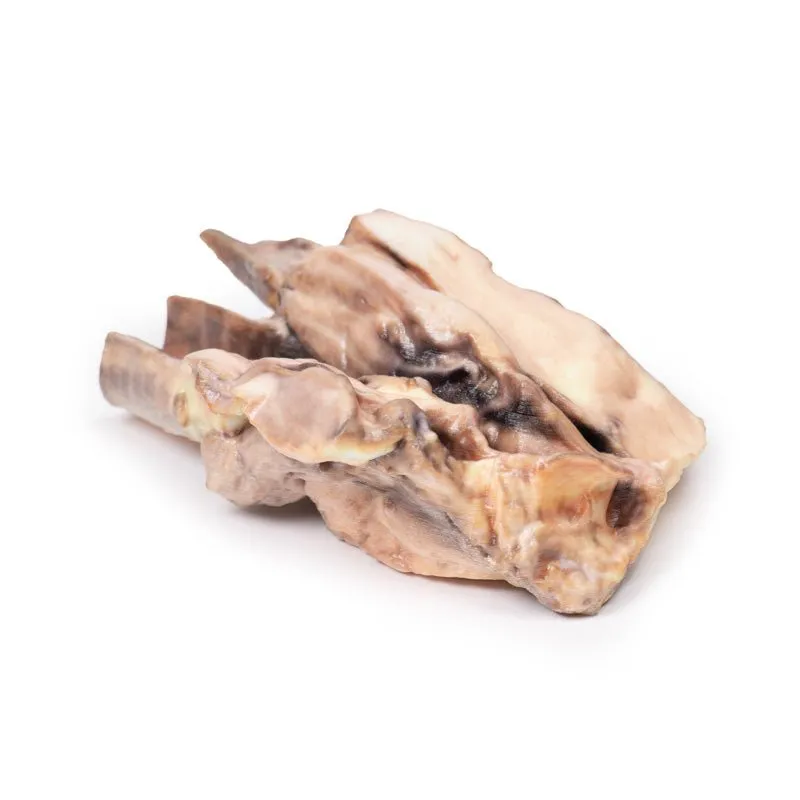3D Printed Lymphoma of the Thyroid
Clinical History
A 68-year old woman presented with a small hard lump in the thyroid. During the
following six weeks, there was progressive rapid enlargement of the mass leading to laryngeal stridor and
oesophageal obstruction, which were the terminal features. No lymph nodes were enlarged and there was no
splenomegaly.
Pathology
The larynx, thyroid, upper trachea and oesophagus are included in the specimen. The
enlarged left lobe and to a lesser degree, the right lobe of the thyroid, are replaced by homogeneous pale tumour
tissue. Stretched over the lateral margin of the left lobe is the common carotid artery. Note on the internal aspect
how the larynx is compressed and the oesophagus virtually disappears into the bulk of the tumour. The histological
appearance of the tumour was consistent with lymphoblastic lymphoma of the thyroid. The rarity of this tumour makes
it necessary to exclude the diagnosis of anaplastic carcinoma of the thyroid, and secondary spread from lymphoma
elsewhere.
Further Information
Primary lymphoma of the thyroid is rare but should always be considered as a
differential diagnosis of any thyroid mass or nodule. Primary thyroid lymphomas are rare, and are usually of the
non-Hodgkin type. Lymphoblastic lymphoma is an aggressive form of non-Hodgkin’s lymphoma (NHL), usually seen in
children. Currently, the only known risk factor for developing primary thyroid lymphoma is chronic autoimmune
(Hashimoto’s) thyroiditis, with a 50% occurrence rate.
Thyroid lymphoma should be considered in any individual presenting with a rapidly enlarging ‘goitre’, as over 90% of
individuals with this disease present this way. As the goitre enlarges, there can be compression of nearby
structures such as the trachea, oesophagus and neck vessels (the common carotid in this case). The resulting
symptoms include stridor or hoarseness, dysphagia and neck pain. Other systemic symptoms of lymphoma include
so-called B-symptoms, i.e. night sweats, fevers and loss of weight.
Diagnosis can be achieved by an ultrasound
scan followed by fine needle aspiration or excisional biopsy. As thyroid lymphomas cannot be excluded from
Hashimoto’s or other carcinoma, cytology and immunohistochemical stain of the biopsied tissue is required to confirm
the diagnosis.
GTSimulators by Global Technologies
Erler Zimmer Authorized Dealer




